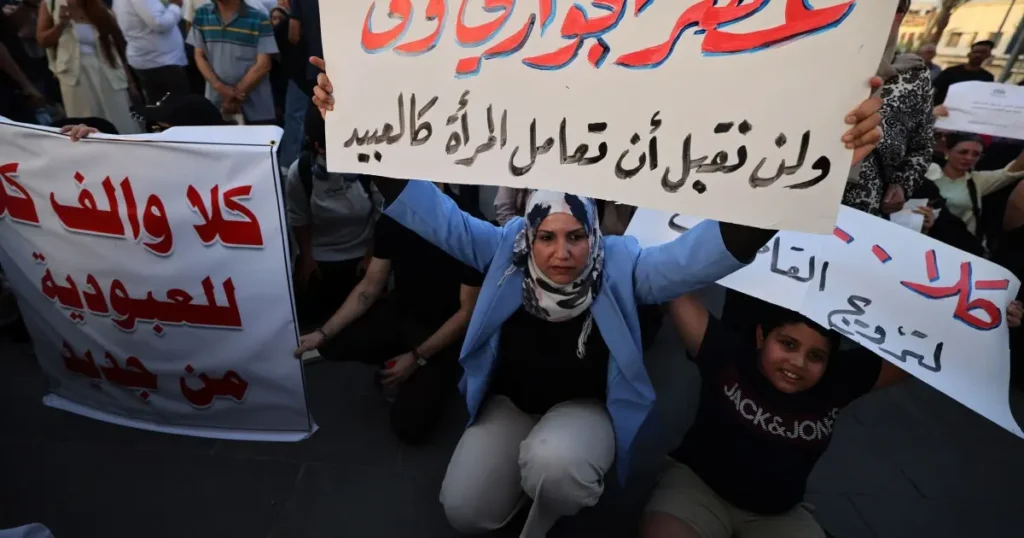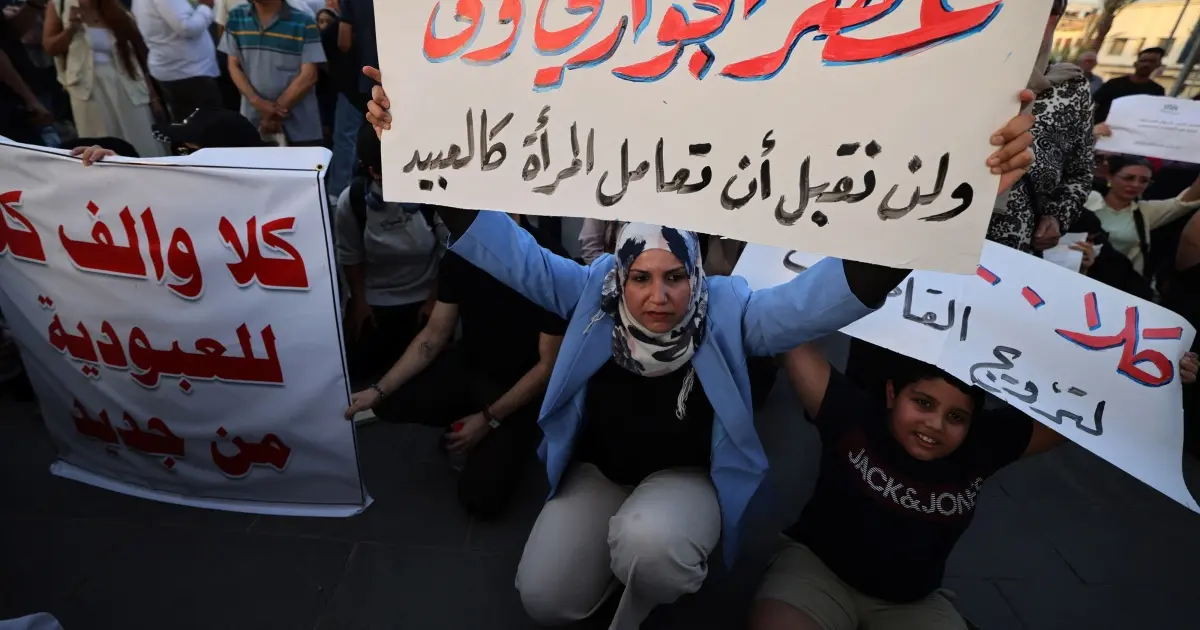child marriage in Iraq is once again at the center of heated debate after a proposed legal change suggested lowering the marriageable age for girls to as young as 9 years old. The draft legislation, introduced in parliament earlier this year, has sparked international outcry, fierce criticism from human rights groups, and sharp divisions within Iraqi society itself.
While supporters of the proposed law argue that it aligns with certain religious interpretations, opponents stress that it would violate international conventions, undermine children’s rights, and set back decades of progress in protecting young girls from abuse and exploitation. The proposal has forced the nation to confront difficult questions about law, religion, culture, and the future of women’s rights in Iraq.
Background of the proposed law
The legal age for marriage in Iraq currently stands at 18, though exceptions exist that allow marriages at younger ages with judicial approval. The new draft amendment, however, goes much further. If passed, it would lower the minimum legal marriage age for girls to 9, provided consent is given under religious frameworks.
Critics say such a drastic move could normalize child marriage and leave girls vulnerable to coercion, abuse, and lifelong economic and social disadvantages. They argue that the proposal directly contradicts Iraq’s obligations under international treaties, including the Convention on the Rights of the Child.
Why child marriage in Iraq is a sensitive issue
Child marriage in Iraq is not a new phenomenon. Over the last two decades, economic hardship, displacement, and social instability have all contributed to rising numbers of underage marriages. Families struggling with poverty sometimes marry off daughters at a young age, believing it will provide financial relief or protection.
Yet evidence consistently shows that early marriage often leads to school dropouts, early pregnancies, higher maternal health risks, and cycles of poverty that continue into the next generation. For many Iraqi women’s rights activists, legalizing child marriage is not only dangerous but also sends a devastating message about the value of girls in society.
International backlash
As soon as news of the draft law spread, major international organizations, including UNICEF, Human Rights Watch, and Amnesty International, released statements urging Iraqi lawmakers to reconsider. They stressed that legalizing child marriage at such a low age would represent a serious violation of global human rights norms.
Diplomatic missions in Baghdad also expressed concern, warning that the proposed law could harm Iraq’s international reputation and strain relations with allies committed to promoting women’s rights and equality.
Local voices divided
Inside Iraq, reactions to the proposal vary. Some religious leaders and conservative politicians support the law, arguing that it reflects traditional values and provides legal clarity for unions already happening in parts of the country. They emphasize that consent would remain a requirement, and that the law is consistent with religious teachings.
On the other hand, civil society groups, women’s rights activists, and many younger Iraqis have strongly opposed the plan. Protests have taken place in Baghdad and other cities, with demonstrators carrying signs that read “Children Not Brides” and “Protect Girls, Don’t Exploit Them.”
For these activists, the issue is not just about religion but about human dignity, health, and the future of half the population.

Possible consequences if passed
If the draft law on child marriage in Iraq is approved, experts warn of multiple consequences:
- Higher rates of school dropouts among girls
- Increase in child and maternal mortality due to early pregnancies
- Greater vulnerability to domestic violence and abuse
- Long-term economic inequality for women
- Reputational damage to Iraq internationally
In addition, normalizing marriage at such a young age could further entrench gender inequality and reduce the country’s ability to move forward with social and economic reforms.
The government’s position
So far, Iraqi officials remain divided. Some lawmakers insist the law is only in its early stages and still open for debate. Others have vowed to block it entirely, calling it a dangerous step backward.
The government faces pressure from both sides: conservative blocs that want to push the law forward and reformist groups determined to protect the rights of children. The final outcome will depend on ongoing parliamentary negotiations, but the controversy has already left a lasting mark on Iraq’s political and social landscape.
What activists propose instead
Women’s rights organizations in Iraq are calling for stronger child protection laws, more investment in education for girls, and economic policies that ease the pressures driving families to consider child marriage. They argue that instead of lowering the age, Iraq should raise enforcement against illegal child marriages and expand awareness campaigns about the dangers of marrying too young.
International aid groups working in Iraq have also pledged support for local initiatives aimed at empowering girls, providing vocational training, and creating safe spaces where they can pursue education and career opportunities.
A debate that reflects deeper struggles
At its core, the debate over child marriage in Iraq is about more than just legal age. It reflects a larger struggle between tradition and modernity, between religious authority and human rights advocacy, and between competing visions of Iraq’s future.
While the proposal has sparked outrage abroad, the ultimate decision will rest with Iraq’s parliament. Whether the law passes or fails, it has already ignited a critical conversation about the role of women and children in shaping the nation’s path forward.
Conclusion
child marriage in Iraq is not just a policy issue—it is a human rights challenge that carries long-term consequences for society. Allowing legal marriage at 9 years old would not only endanger thousands of girls but also undermine Iraq’s progress in gender equality and international standing.
The debate is far from over, but the voices of activists, citizens, and global observers continue to call for one clear message: children should be protected, not married.
Do follow us: Instagram
Read More: Kuwait’s Polymer Industry: A New Frontier for Economic Growth



